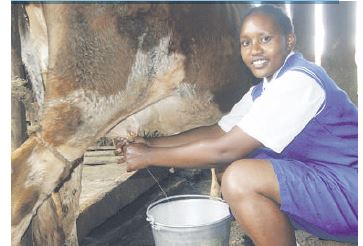×
The Standard e-Paper
Kenya’s Boldest Voice

A few years ago, a 14-year-old girl walked into Moi Girls School Kamusinga in Bungoma County and asked to see the principal. In her hand was the admission letter with a list of everything she needed to buy before joining the school.
“I have come, but I have nothing. Help me,” she begged. She was an orphan who had scored more than 350 marks in KCPE, but the future looked bleak because nobody had offered to sponsor her. Amidst tears, she explained that her only hope was with the school.